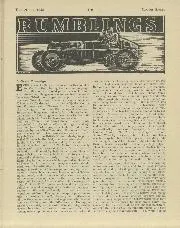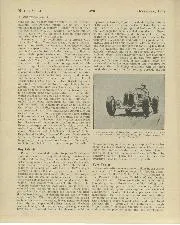

BUMBLINGS
A Great Campaign since the German teams ran in this country for the first time, feeling has been running high that this country should put a team of Formula cars…

Let’s have a crack at defining what constitutes ‘memorabilia’ and what is considered ‘automobilia’.
There’s definitely distinctions to be made. Among football collectibles, items like team shirts, trophies or boots all qualify as memorabilia – they are to do with the living history of the sport.
Automobilia means items related to the history of motoring, such as fuel pumps, signage, garage tools or badges.
At Signature Store we trade items associated with the sport of motor racing, straddling the two. That can also include collectibles like posters or models that were not used for the actual event, but created because of it. Buyers are almost always fans of the sport, rather than just those out to find something motoring- themed or decorative.
Collectors of motor racing automobilia usually hunt for specific items –trophies, programmes, autographs, models etc. Many of these items are rare, and some valuable. If you find a trophy your grandfather won, that’s a one-of-a- kind – possibly not valuable, but priceless to you; it might be classed as both memorabilia and automobilia
Items such as rare bonnet ornaments can be classed as decorative art and fetch thousands, but it doesn’t tend to be such an accessible market as racing automobilia.
We don’t handle bonnet badges, old fuel cans or dealer signs, decorative items great for pepping up a bar or garage. The core of our market is collectibles such as the replica 1955 Mille Miglia roller map [above], but also wall art, models, helmets, books and race-used items.
I hope that’s cleared up any confusion. Now where’s that fuel churn used by Lotus at Aintree in 1964 signed by Jim Clark, that later spent decades in a Lotus dealership window. And which category is that in?